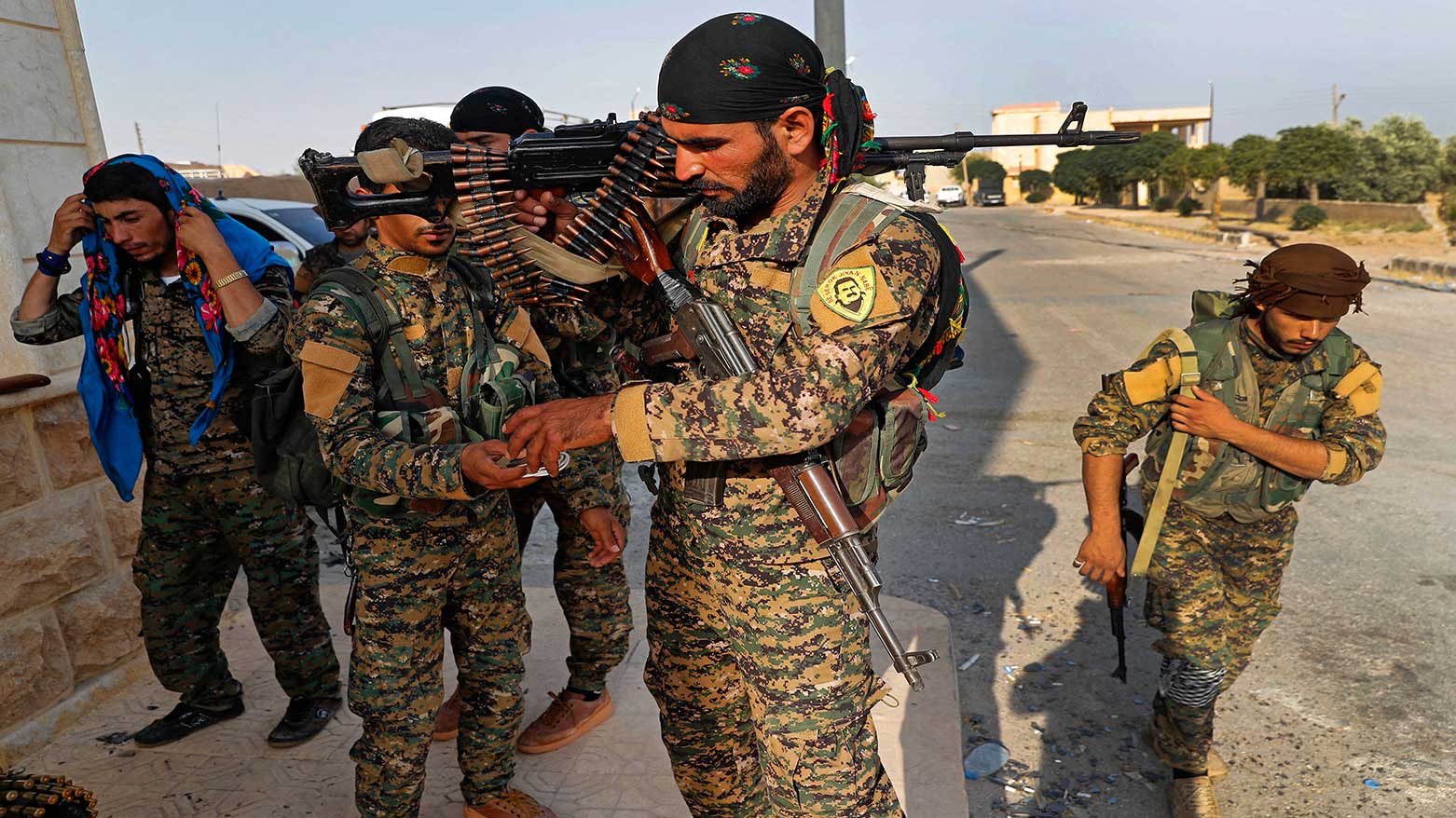Syria's New Defence Minister Gives Armed Groups 10 Days to Join National Forces
The interim government faces pressure to move forward with a landmark agreement struck in March with the SDF. The deal that envisions integrating the Kurdish autonomous administration’s political and military institutions into the new Syrian state, expected to be implemented by the end of the year.

ERBIL (Kurdistan24) — Syria’s newly appointed Defence Minister, Murhaf Abu Qasra, has issued a 10-day ultimatum to remaining armed groups in the country to formally join the national defence forces, in a sweeping move aimed at unifying the country's fractured military landscape after the ousting of President Bashar al-Assad, according to a report by Agence France-Presse (AFP).
The ultimatum, announced Saturday, comes as Syria's interim government, led by President Ahmed al-Sharaa, pushes to consolidate military control under its new defence ministry. The majority of Syria’s previously active armed factions have reportedly been integrated into the new military structure, yet several smaller groups have remained outside the fold.
“We emphasise the need for the remaining small military groups to join the ministry within a maximum period of 10 days from this announcement,” Abu Qasra said in a statement. He warned that any delay in complying with the directive would “necessitate taking the appropriate measures according to the law,” although he did not specify what those measures might entail or name the factions that have yet to comply.
The statement framed the move as part of efforts “to complete the unification and organisation efforts” of Syria’s new defence architecture.
Dissolution of Assad-Era Institutions
Following the December overthrow of Bashar al-Assad in a dramatic and rapid offensive led by the hardline group Hayat Tahrir al-Sham (HTS), the new administration has undertaken radical reforms. These include the dissolution of Assad-era army and security institutions, along with all armed factions—HTS included.
The factions that accepted the new framework have been absorbed into the ministry of defence and the newly formed General Security forces. Notably, armed groups from Daraa in the south, Turkey-backed groups in the north, and several Islamist factions have reportedly joined the restructured national force, while maintaining their weapons and territorial presence.
Despite these efforts, HTS and its aligned Islamist factions continue to exert significant influence, particularly in their traditional strongholds in Idlib and Damascus. HTS, once known as Al-Nusra Front and affiliated with Al-Qaeda, remains designated as a terrorist organisation by several Western countries, complicating its full integration into state structures.
Strategic Stakes and Ongoing Challenges
The formation of a unified national army remains one of the top priorities for Abu Qasra, a former rebel commander who played a central role in Assad’s overthrow. Yet, the task is fraught with challenges—ranging from divergent political loyalties to deep-seated rivalries among factions that previously fought both the regime and each other.
Additionally, the interim government faces pressure to move forward with a landmark agreement struck in March with the Kurdish-led Syrian Democratic Forces (SDF). The deal, which envisions integrating the Kurdish autonomous administration’s political and military institutions into the new Syrian state, is expected to be implemented by the end of the year.
Earlier this week, Syria’s new Foreign Minister Asaad al-Shaibani warned that any delays in implementing the Kurdish agreement would risk “prolonging the chaos” in the country.
While Syria’s post-Assad leadership has made rapid strides in reshaping the country’s political and military frameworks, the path toward lasting stability remains uncertain, especially with powerful factions like HTS continuing to operate with considerable autonomy.
